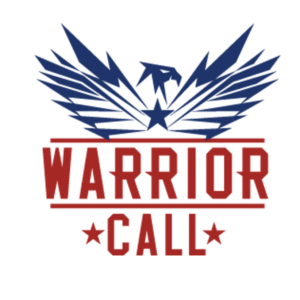Veterans answered their nation’s call, and now a group of Americans are joining together to answer a cry for help from far too many of those who’ve served.
Military veterans make up roughly 10 percent of the adult population in the United States. Unfortunately, one of the most common causes of death for veterans is suicide. Increases in veteran suicide, especially during COVID, inspired the Troops First Foundation to ask Congress to declare November 21, 2021, the first annual “National Warrior Call Day.”
The movement is backed by the seven living secretaries of Veterans Affairs (VA), who wrote to Congress urging them to act.
Former VA Sec. David Shulkin, MD said, “Warrior Call Day is important to remind each of us that the sacrifices continue for the brave men and women who defend our country. We want all Americans to be aware of the responsibility to reach out and offer support to our veterans.”
U.S. Rep. Mary Scanlon (D-Pa.) supports the effort. She says the effort is only part of addressing the broader issue. Warrior Call Day’s goal is for Americans across the country to reach out to their family and friends who have served.
“One of the issues that we’ve seen over time, and you see the same thing with law enforcement, is that it’s very tough to kind of crack the nut with veterans to make sure that they get the services that are available, how to reach people, and similar to law enforcement, it’s the folks who are used to being the rescuers and not wanting to ask for help.”
Mental health issues are not uncommon in the United States, especially among military veterans. According to the VA, more than 1.7 million veterans received services for mental health issues in 2018.
Part of the issue with mental health and military veterans is the stigma that surrounds these issues. Asking for help can often be seen as a weakness for members of the Armed Forces. There is hope that Warrior Call Day will bring more attention to this problem and help break that cycle.
“I think it’s probably part of the whole de-stigmatization issue that we’re dealing with across the board with mental health issues and making sure that people check in with their loved ones and trying to get some traction that way,” Scanlon said. “Because of the escalating issues with suicide, there have been a number of different approaches, whether it’s beefing up resources, or trying to find alternative methods of service delivery, making sure that we connect people as they’re leaving the service more strongly so they don’t have to go looking as hard. I think it’s part of a whole menu of efforts to really get a handle on the problem.”
For veterans, the services and resources by federal agencies, particularly the VA, often get mixed reviews. According to a survey by Pew Research, only 46 percent of those veterans surveyed felt the VA was doing a good job. Another survey by Pew Research found 37 percent felt the VA is doing a fair job, while 15 percent felt it is doing a poor job.
One way that Congress has stepped up for veterans in the past is the Blue Water Navy Bill passed in 2019. It instructs the VA to presume that Navy veterans who served aboard ships in the open waters off the coast of Vietnam were impacted by the use of Agent Orange and should receive the appropriate medical benefits.
Scanlon says there’s a similar effort being explored for post-9/11 veterans and the burn-pits used in the Middle East. About 25 percent of veterans are already experiencing health issues from exposure to these pits.
“We do have more former-service members in Congress now than we’ve had in decades so that is helpful to have people in the mix who are first hand on some of the issues,” Scanlon added.
Former VA Sec. Robert McDonald also urges Americans of the importance of National Warrior Call Day.
“We must get Veterans connected to other Veterans and the qualified care they deserve,” McDonald said. “The Veterans Crisis Line (1-800-273-8255) plays a critically important role in this. They save lives. We know from research that if we can connect Veterans to the VA (and the Crisis Line) we can save lives. Nearly 70 percent of those who take their own lives are not connected to the VA. So, National Warrior Call Day is an opportunity to connect every Veteran to the care they need and deserve.”





